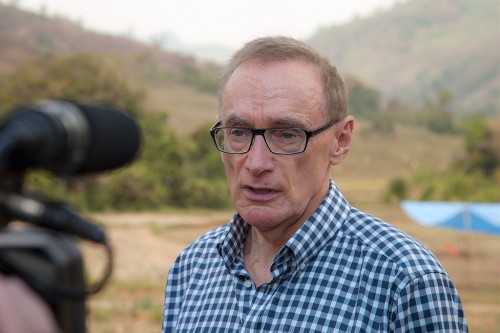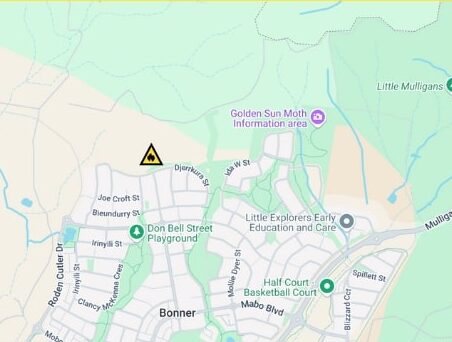By Michelle Grattan, University of Canberra
IF he’d been willing to take more of a chance, Bob Carr might have got a crack at the prime ministership.
In his Diary of a Foreign Minister, Carr recounts how NSW ALP secretary Mark Arbib urged him to stand for Blaxland in 2007, to become foreign minister in a Kevin Rudd government.
But Carr held back, not sure Rudd would win and hearing he was not that enamoured of the idea of Carr in Parliament.
“Well, I thought, that’s enough for me. I want to be Foreign Minister, nothing else. And if there’s a lack of enthusiasm from the Prime Minister then there’s a danger I could be trapped in federal politics without securing the only job I would want there.”
Given the saga that played out over the next six years, Carr would surely have been seen at some point as a leadership option. But Carr’s diary shows that, when it came to federal politics, the former longest-serving NSW premier since federation wanted things on his terms.
Carr is a true prima donna, and he’s without concern for how personal revelations will appear to others. Another politician might have been discontented with business class travel, obsessed with getting organic steel-cut oats, fanatical about exercise and a flat stomach, but reluctant to invite ridicule by exposing such preoccupations. Carr doesn’t give a damn. He just lets it hang out there.
After all, he often felt he was the one making the sacrifices. “Flying into Canberra on a Saturday or Sunday night and, even worse, arriving at the Mughal mausoleum that poses as the parliament of a democracy – this is dismal, like feeling an episode of melancholia take hold, and I half-resented the Prime Minister [Rudd] for summoning a National Security Committee meeting for six-thirty last night,” he wrote during the campaign.
Nor is he shamefaced about telling an untruth, as he did blatantly in response to a story in Fairfax papers, published when he was overseas, reporting that Julia Gillard had lost his support. After his denial, a Gillard staffer texted him saying the story’s author had verballed him, virtually claiming he had lied. “I don’t respond. … Interesting … when you don’t return calls of the leader’s staff. Power is ebbing, shifting from her.”
When in 2012 Gillard recruited Carr to the Senate and the foreign affairs job – on Arbib’s quitting parliament – he had few illusions. He knew he likely had only 18 months – the Gillard government already looked terminal. But he was determined to relish the unexpected opportunity to the full. He and wife Helena travelled constantly. Carr continually complained about the jet lag but loved being an international player, lobbying for Australia’s Security Council bid (at times deeply pessimistic about it), fraternising with members of the “foreign ministers club” and “names”, especially his hero Henry Kissinger, to whom he wrote letters about his activities.
The personal excesses in this book will entertain and outrage but unfortunately also divert attention from the considerable substance.
For instance what Carr says about the aftermath of the 2011 announcement of the American “pivot” towards the Asia-Pacific region, which involved US troops rotating through northern Australia, a concern to China. Carr had been critical of this on his blog before becoming foreign minister and he records his resistance as minister, in light of Chinese sensibilities, to even deeper involvement. Carr’s instincts in in relation to China were good.
Highly controversial has been his targeting in the book of the Melbourne-based “Israel lobby” for its influence on Australia’s United Nation votes in relation to Palestine and other Middle Eastern issues.
It infuriated him from the get-go. In April 2012 he wrote: “the Israel lobby complains at my statement expressing concern at settlements. So, we can’t even express ‘concern’ without complaint. This lobby must fight every inch. The old story. What do they want? That Australia declares its full support for Israeli colonisation of the Palestinian Territories? Urge that settlement numbers be lifted beyond half a million? Doubled? Bruce Wolpe, on the Prime Minister’s staff [with one of his responsibilities liaison with the Jewish community], has suggested I do a teleconference with ‘the community’. My response: no.”
He documents how tightly Gillard and her office controlled these issues and anything he wanted to say on them. But on one crucial and dramatic occasion he rolled her.
She was determined Australia oppose a resolution to give Palestine non-member observer State status at the UN, despite cabinet overwhelmingly being against her. Eventually she gave way, knowing the party room (with Carr helping foment a revolt) was likely to overturn her decision. Carr had warned her he would desert her on the floor of caucus.
Carr’s brinkmanship was remarkable, the action of a politician willing to throw the dice on a matter he regarded as crucial. Again, he was right on the substance. Australia should not have voted against the resolution. It abstained.
Carr said on television on Wednesday: “I think the great mistake of the pro-Israel lobby in Melbourne is to express an extreme right-wing Israeli view rather than a more tolerant liberal Israeli view.”
The Melbourne Israel lobby has bitten back at Carr but his argument about its influence via funds shouldn’t be dismissed. Carr says Rudd told him that about one-fifth of the money he had raised in the 2007 election campaign had come from the Jewish community.
Apart from the particular interest group, this is the latest highlighting of a wider phenomenon: the power of behind-the-scenes lobbying and money in Australian politics. In another sphere, we’ve heard a lot about this in the Independent Commission Against Corruption inquiry into Australian Water Holdings.
Carr’s claims about the Israel lobby’s influence are of interest on another front. The two ministers on Gillard’s side in the cabinet discussion on the UN resolution were Stephen Conroy and Bill Shorten.
Shorten recently stirred controversy when, addressing the Zionist Federation of Australia, he said some settlements were illegal under Israeli law. This sparked questions about whether Labor was changing its policy. It quickly denied any change with a spokesman for shadow foreign minister Tanya Plibersek saying: “Clear Department of Foreign Affairs and Trade advice to Labor in government was that the settlements are not in line with international law.”
Carr’s claims about the Israel lobby will ensure Shorten’s attitudes on these issues will come under close scrutiny.
Carr not only backed Rudd but thought Gillard should step down because he had a better chance of saving seats. He conveyed that view indirectly and, on the day Gillard was deposed, directly; he condemned her refusal to yield as “selfish”.
He was correct in believing her standing aside would have been both wise and in the party’s best interests. But given the enmity between Gillard and Rudd, which in large measure caused the destruction of the Labor government, rational calculation and an ability to rise above the personal hurt were never going to be achievable.
Carr’s own support for Rudd was pragmatic. His references to him are more unflattering than complimentary. There is the hint he regarded him as a bit of a freak. After Rudd regained the leadership, Carr briefly thought election victory might be possible. His July 10, 2013 entry says: “Delicious that Liberals are staring at polls that put us 50:50 and Rudd ahead as preferred Prime Minister. Their snouts were poised, but the trough, with its flavoursome offerings, has been withdrawn. My default expectation is that I’ll be in the job after the election.”
But hope quickly faded. “We are trapped in a nightmare, seeing Rudd’s tide ebb,” and his criticism of Rudd increased.
Carr had pledged to stay for a full six year term, whatever happened at the election. No-one thought he’d keep that promise. After all, as he made clear towards the end of the campaign when defeat loomed, he could not bear the thought of more nights in “The City of the Dead” and its Realm Hotel. Certainly not if he wasn’t in the job of his dreams.
Postscript: There is much to intrigue in the Carr book, but this cameo is among the strangest.
Carr and fellow minister Jason Clare (member for Blaxland) were in the Canberra Qantas Club Lounge in early June 2013 watching Rudd on 7.30 “strutting his stuff for a return to the leadership”. Also there was a “tall, statuesque blonde” caucus member, whom Carr couldn’t name.
The woman told him Rudd was their only hope and he should speak up for change. She was on 1% margin and “gone”, she said. “I asked Jason who she was. He said he didn’t know. What? I don’t know half the caucus – even more. But I’ve got an excuse: I’m an elitist arriviste. He’s been here since 2007 and is spoken of as a potential leader.
“Who is she?” After the question, Carr moves on to record the slow-cooked lamb he had for dinner.
The woman was Victorian member Laura Smyth, and she is indeed gone – Rudd’s comeback didn’t save her.
![]()
Michelle Grattan does not work for, consult to, own shares in or receive funding from any company or organisation that would benefit from this article, and has no relevant affiliations.
This article was originally published on The Conversation.
Read the original article.
[Photo by DFAT, Attribution Licence]
Who can be trusted?
In a world of spin and confusion, there’s never been a more important time to support independent journalism in Canberra.
If you trust our work online and want to enforce the power of independent voices, I invite you to make a small contribution.
Every dollar of support is invested back into our journalism to help keep citynews.com.au strong and free.
Thank you,
Ian Meikle, editor





Leave a Reply